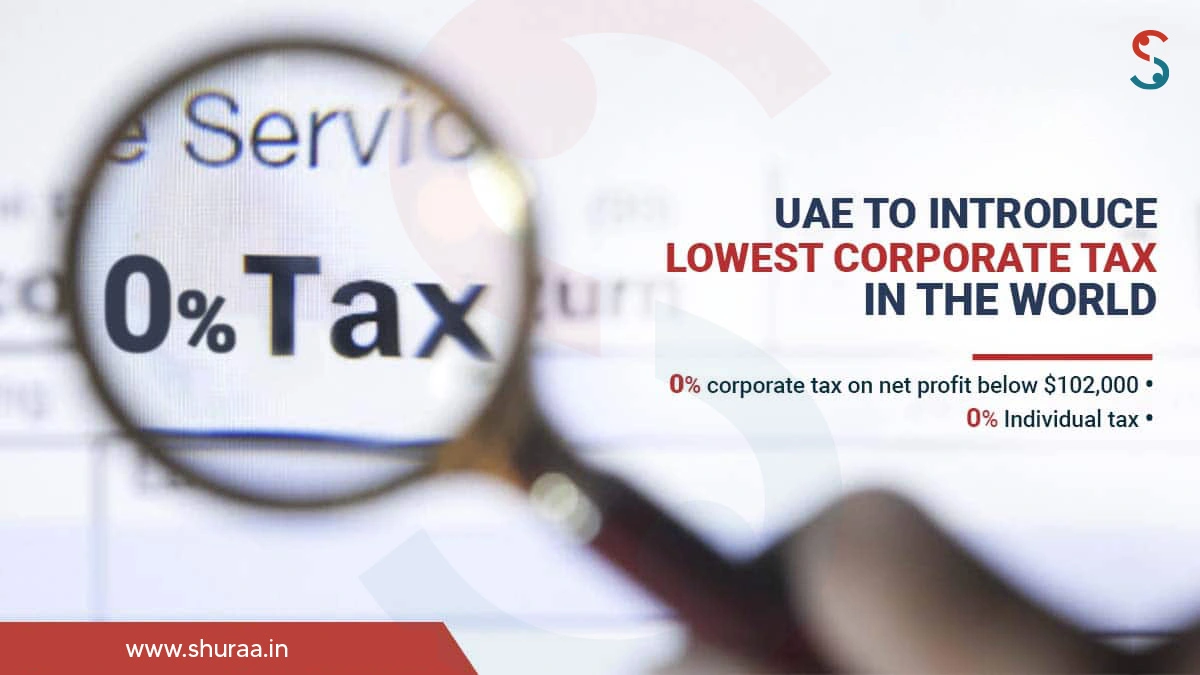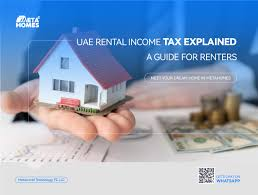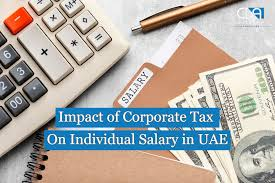Now Reading: Understanding Corporate Tax Impact on UAE Rental Income Returns
-
01
Understanding Corporate Tax Impact on UAE Rental Income Returns
Understanding Corporate Tax Impact on UAE Rental Income Returns

Table of Contents
The UAE’s introduction of a 9% corporate tax in June 2023 under Federal Decree-Law No. 47 of 2022 has reshaped the real estate investment landscape, particularly for rental income. In 2025, with transactions reaching AED 893 billion ($243 billion) in 2024 and rental yields averaging 7-11%, investors, including Americans, must navigate this tax to maximize returns.
This guide examines how corporate tax affects rental income, key exemptions, and strategies to optimize net returns in high-demand areas like Dubai, Abu Dhabi, and Ras Al Khaimah, all within a tax-free personal income environment.
Corporate Tax Overview for Rental Income

Corporate tax applies to juridical persons (e.g., LLCs, partnerships) and certain individuals conducting real estate business activities in the UAE, at a 9% rate on taxable income above AED 375,000 ($102,000). Rental income is taxable when earned through a licensed business or corporate entity, but personal rental income from up to four properties owned by individuals is exempt, provided no business license is held.
For example, a U.S. investor owning a Dubai Marina apartment generating AED 200,000 ($54,500) in annual rent avoids tax if held personally, but a company earning the same faces 9% tax on profits after deductions.
Impact on Rental Income Returns
Rental yields in the UAE remain high, with Dubai Marina at 6-8%, Ras Al Khaimah at 7-11%, and Ajman at 8-10%. Corporate tax reduces net returns for businesses but allows deductions for expenses like maintenance, property management fees, and interest on loans. Consider a company earning AED 1 million ($272,000) in rental income with AED 300,000 in deductible costs:
- Taxable Income: AED 1,000,000 – AED 300,000 = AED 700,000
- Tax-Free Threshold: AED 375,000
- Taxable Portion: AED 700,000 – AED 375,000 = AED 325,000
- Tax Liability: AED 325,000 × 9% = AED 29,250 ($7,970)
- Net Return: AED 700,000 – AED 29,250 = AED 670,750 ($182,700)
- Effective Yield: Reduced from 7% to ~6.7% after tax
This shows a modest impact, but strategic planning can mitigate losses, maintaining competitive returns compared to global markets like New York (4.2%).
Key Exemptions and Reliefs
Several exemptions and reliefs help minimize the corporate tax burden on rental income:
- Individual Ownership Exemption: Individuals owning up to four residential properties are exempt from corporate tax on rental income, provided they do not operate under a business license. This encourages personal investment in areas like Saadiyat Island, where villas yield 6-8%.
- Free Zone Benefits: Qualifying Free Zone Persons (QFZPs) in zones like Jebel Ali or Ras Al Khaimah Economic Zone (RAKEZ) face 0% tax on rental income from free zone properties, provided transactions avoid mainland UAE. For instance, a RAKEZ-based firm leasing Al Marjan Island apartments avoids the 9% tax.
- Small Business Relief: Firms with revenues below AED 3 million ($816,000) annually qualify for 0% tax, benefiting small agencies or landlords in Ajman. A brokerage earning AED 2 million in rental commissions saves AED 180,000 in taxes.
- REITs and Investment Funds: Real Estate Investment Trusts (REITs) meeting conditions (e.g., 80% income distribution) are exempt, shielding rental income. Investors in REITs like those in Al Reem Island enjoy tax-free 7-8% yields.
Strategies to Optimize Returns
To counteract corporate tax impact, investors can adopt these strategies:
- Hold Properties Personally: Transferring properties to individual ownership avoids corporate tax for up to four units. A U.S. investor with three Ajman Corniche apartments yielding AED 150,000 annually saves AED 13,500 in taxes.
- Maximize Deductions: Deduct expenses like repairs, marketing, and loan interest to reduce taxable income. A company managing Yas Island villas with AED 500,000 in expenses lowers its tax liability by AED 45,000.
- Operate in Free Zones: Establishing a free zone entity for property management, like in DMCC, eliminates tax on qualifying income. This preserves 8-10% yields for Al Hamra Village rentals.
- Use REITs for Scale: Large investors can channel funds through tax-exempt REITs, avoiding corporate tax while benefiting from diversified portfolios in high-growth areas like Dubai South.
- Timing Income Recognition: Deferring lease agreements to lower-profit years can keep income below the AED 375,000 threshold, reducing tax exposure for smaller firms.
- Engage Tax Experts: RERA-registered agents and FTA-accredited consultants ensure compliance with transfer pricing and filing deadlines (nine months post-financial year), avoiding penalties up to AED 10,000.
Impact on Different Emirates
- Dubai: High rental demand (95% occupancy in Marina) and 6-8% yields face minimal tax impact with deductions and free zone options. Off-plan sales in Dubai South (15% growth) amplify returns.
- Abu Dhabi: Saadiyat and Yas Islands offer 6-9% yields, with freehold zones like ADGM exempting QFZPs from tax, preserving returns.
- Ras Al Khaimah: Al Marjan Island’s 7-11% yields benefit from RAKEZ’s 0% tax, making it a low-tax haven for investors.
- Ajman: Affordable properties (AED 400,000) and 8-10% yields attract small businesses leveraging tax relief, minimizing impact.
Why This Matters for American Investors

UAE rental yields (7-11%) outshine global hubs, and no personal income tax maximizes net returns. Freehold ownership, Golden Visas (AED 2 million), and proximity to Dubai International Airport (20-45 minutes) enhance appeal. Corporate tax’s modest impact, mitigated by exemptions and strategies, keeps the UAE competitive. In 2025, 45% of Dubai’s buyers were foreign, with Americans drawn to tax-efficient structures.
Market Outlook and Challenges
The UAE real estate market projects 5-8% price growth in 2025, with rentals rising 13-18%. The 15% Domestic Minimum Top-up Tax for MNEs (revenues over AED 3 billion) adds complexity for large firms, effective January 2025. A potential 10-15% correction in 2026 due to oversupply (41,000 Dubai units) and AML compliance costs require vigilance. RERA agents ensure compliance and optimize tax strategies.
Conclusion
The UAE’s 9% corporate tax impacts rental income returns for businesses but spares individuals with up to four properties. With 7-11% yields, exemptions for free zones, small businesses, and REITs, and strategies like deductions and personal ownership, investors can minimize tax burdens.
American investors benefit from tax-free personal income, high ROI, and visa perks in a vibrant 2025 market. Proactive planning and expert guidance ensure sustained profitability in Dubai, Abu Dhabi, and beyond. corporate tax
read more: UAE Property Taxation: 8 Exemptions Investors Should Know in 2025






















